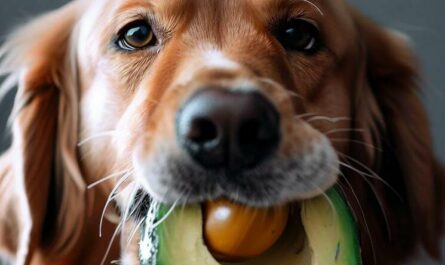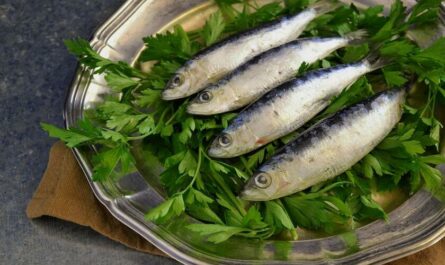As a responsible dog owner, it’s natural to wonder about the safety of certain human foods for your furry companion. Bananas, with their appealing taste and nutritional value, may seem like a healthy choice. But before offering your dog this tropical treat, it’s essential to understand the potential benefits and risks associated with dogs consuming bananas.
Table of Contents
ToggleThis article will peel back the layers of myth and fact to determine whether dogs can safely eat bananas, how often, and the benefits and potential risks involved.
Can Dogs Safely Eat Bananas?
The Short Answer is Yes, dogs can eat bananas. This fruit is not toxic to dogs and can be a healthy treat in moderation.
When it comes to feeding your dog anything that isn’t their regular dog food, it’s crucial to consider safety first. Fortunately, bananas are generally safe for dogs to eat. They are a good source of essential nutrients, including potassium, vitamin C, and vitamin B6. Additionally, bananas contain dietary fiber, which can aid in digestion.
However, bananas have a high sugar content. This means they should be given as a treat and not make up the main part of a dog’s diet. It’s important to practice moderation and consult with your veterinarian before introducing any new food into your dog’s diet.
The Concerns
While bananas are safe for dogs to eat, there are a few things to keep in mind. Because of their high sugar content, bananas should be given to dogs in small quantities, especially for smaller dogs or those prone to weight gain.
Consulting with your veterinarian is always recommended when adding new human food to your dog’s diet.
What Nutritional Benefits Do Bananas Offer to Dogs?
Bananas, a rich source of essential nutrients, can provide several health benefits for dogs. Here are a few key nutrients found in bananas and their potential benefits:
1. Potassium
Potassium plays a vital role in maintaining healthy muscle function and supporting proper nerve transmission. It also helps regulate the balance of fluids in the body. Bananas are an excellent source of potassium, making them a good choice for providing this essential nutrient to your furry friend.
2. Vitamin C
Vitamin C is an antioxidant that supports a strong immune system in dogs. It can help fight off harmful free radicals and protect against various diseases. Bananas contain vitamin C, adding to their nutritional value for dogs.
3. Vitamin B6
Vitamin B6, also known as pyridoxine, is essential for brain development and function in dogs. It aids in the production of neurotransmitters, such as serotonin and dopamine, which regulate mood and behavior. Bananas contain vitamin B6, contributing to your dog’s overall brain health.
4. Dietary Fiber
Bananas are a good source of dietary fiber, which can support healthy digestion in dogs. Fiber helps maintain regular bowel movements and can prevent constipation. Introducing bananas in moderation can provide a natural boost of fiber to your dog’s diet.

How Often Can I Feed My Dog Bananas?
While bananas offer nutritional benefits, it’s important to feed them to your dog in moderation. The frequency of feeding bananas to your dog depends on their size, overall health, and dietary needs.
Frequency Recommendations
Dogs can have bananas 1-3 times a week, depending on their size and overall health. It’s essential to consider the total amount of treats your dog gets daily, ensuring that treats, including pieces of banana, do not constitute more than 10% of their total daily caloric intake.
How Much Banana Can Dogs Eat?
The amount of banana you can safely feed depends on your dog’s size:
- Small dogs: 1-2 bites or slices once or twice a week.
- Medium dogs: 2-4 slices a couple times a week.
- Large dogs: Up to half a banana 2-3 times a week.
As you increase the amount of banana, watch for signs of digestive upset like vomiting, diarrhea, or excessive gas. These are signs to cut back or avoid bananas.
For diabetic dogs, consult your vet about adjusting insulin doses to account for the sugar content in bananas.
If your dog is obese or needs to lose weight, bananas should be avoided until a healthy weight is reached. The sugars and starch can easily lead to excess weight gain.
Monitor Your Dog’s Response
Just like humans, individual dogs may have different sensitivities and tolerances to certain foods. Pay attention to how your dog reacts to bananas. Some dogs may experience digestive issues, such as diarrhea, if they eat too much banana.
It’s crucial to start with a small amount and observe how your dog’s body responds before incorporating bananas regularly into their diet.
Are Banana Peels Toxic to Dogs? Can Dogs eat banana peels?
Banana peels are not toxic to dogs; however, they can pose potential risks if ingested. While some people claim that banana peels have nutritional benefits for dogs, it’s important to exercise caution and avoid feeding your dog the peel.
Understanding the Risks
Banana peels are difficult for dogs to digest, particularly for smaller breeds. Ingesting a large piece of banana peel can lead to gastrointestinal blockage and cause discomfort or even require surgical intervention. To keep your dog safe, it’s best to remove the peel before offering your furry friend some banana.
Signs of Digestive Issues
If your dog accidentally eats a banana peel, it’s crucial to monitor them for any signs of digestive distress. Common symptoms include vomiting, diarrhea, or a lack of bowel movements. If you notice any of these symptoms, contact your veterinarian for guidance.
The Best Way to Serve Bananas to Your Dog
While bananas can be a healthy treat for dogs, it’s important to serve them in a way that maximizes their benefits and minimizes potential risks.
1. Fresh and Mashed
The best way to feed your dog bananas is fresh and mashed. Mashing the banana can help your dog digest it more easily, and it can be mixed into their regular dog food or served on its own as a special treat. Remember to serve plain bananas, without any added sugars or flavors, to ensure your dog isn’t consuming any unnecessary and potentially harmful additives.
2. Serving Size
When it comes to serving size, the amount of banana your dog can eat depends on their size. A good rule of thumb is to offer a couple of small pieces of banana for larger dogs and just a small piece for smaller breeds. It’s crucial to avoid overfeeding your dog bananas to prevent digestive issues and weight gain.
When Are Bananas Bad for Dogs?
While bananas offer nutritional benefits, they can be bad for dogs if they eat too many. It’s essential to understand when bananas may not be suitable for your furry friend.
1. Excessive Consumption
If your dog consumes an excessive amount of bananas, the high sugar content can contribute to weight gain and potentially lead to other health issues. Remember that treats, including bananas, should only make up a small portion of your dog’s overall diet.
2. Existing Health Conditions
For dogs with certain health conditions, such as diabetes or weight management issues, it’s best to avoid or limit their banana intake due to the fruit’s high sugar content. Always consult your veterinarian before introducing any new food to your dog’s diet, especially if they have existing health issues.
DIY Banana Dog Treat Recipes
If you’re looking for a fun way to incorporate bananas into your dog’s diet, consider making homemade banana dog treats. By doing so, you have control over the ingredients and can ensure that your furry friend enjoys a healthy and delicious snack.
1. Simple Banana Treats
Creating simple banana treats for your dog is quick and easy. One option is to freeze slices of banana for a cool and refreshing treat on a hot day. Another idea is to mix mashed banana with peanut butter (make sure it’s xylitol-free) and freeze it in silicone molds for a longer-lasting and tasty doggy delicacy.
2. Baking for Your Dog
If you enjoy baking, there are many recipes available for banana-based dog treats that you can make at home. These recipes often combine bananas with dog-safe ingredients like oats, pumpkin, or flour to create biscuits that are both tasty and nutritious for your furry companion.
Alternatives to Bananas: Fruits Dogs Can Eat
While bananas can be a healthy addition to your dog’s diet, it’s always beneficial to offer a variety of fruits to ensure they receive a wide range of nutrients. Here are some safe and healthy fruits that dogs can eat:
1. Apples
Apples are a great choice for dogs. They are low in calories and high in vitamins A and C. However, make sure to remove the seeds and core, as they can be harmful to dogs.
2. Blueberries
Blueberries are an antioxidant-rich fruit packed with vitamins C and K. They are also low in calories and offer a natural sweetness that many dogs enjoy.
3. Watermelon
Watermelon is a hydrating fruit that can be a refreshing treat for dogs. Remove the seeds and rind before offering it to your furry friend, as these parts can be a choking hazard.
Remember to introduce new fruits slowly and in moderation to monitor your dog’s reaction. While these fruits are generally safe for dogs, individual sensitivities may vary.
Can Dogs Eat Dried Bananas?
Dried bananas are safe for dogs to eat in moderation. Look for dried banana chips that don’t contain added sugars.
The drying process concentrates the nutrients and sugars in the banana, so smaller portions are recommended:
- Small dogs: 1-2 chips
- Medium dogs: 2-3 chips
- Large dogs: Up to 5 banana chips
Because dried bananas are sticky and chewy, they do pose a choking risk. Cut any large pieces into smaller bites. Also brush your dog’s teeth after feeding to prevent plaque buildup and tooth decay from the sugars.
Can Dogs Eat Banana Chips?
While bananas can be a healthy treat for dogs, banana chips may not be the best choice. Commercially available banana chips often contain added sugars, salt, or artificial flavorings, which can be harmful to dogs. If you choose to feed your dog banana chips, it’s essential to look for options with no added sweeteners and offer them sparingly.
Dried vs. Fresh
When it comes to nutritional value, fresh bananas are always a better choice compared to dried banana chips. Dried fruits, including banana chips, are more concentrated in sugars and calories. Even unsweetened banana chips should be given in very limited quantities compared to fresh bananas.
Can Dogs Eat Banana Baby Food?
Yes, banana-flavored baby food is safe for dogs as long as it doesn’t contain any added sweeteners. Make sure to read the ingredients.
Banana baby food contains mashed banana making it easy for dogs to digest. The puree consistency also reduces choking hazards.
Look for brands with no added salt, sugar, or artificial flavors. Because baby food is highly palatable, feed in moderation – no more than a few spoonfuls for small dogs and 1-2 tablespoons for larger breeds.
Can Dogs Have Banana Treats and Snacks?
There are some dog treats and snacks made with bananas that are perfectly safe. Look for healthy options with minimal added sugars:
- Banana dog biscuits or cookies – These crunchy treats provide fiber, potassium, and vitamin B6. Avoid sugar-laden varieties.
- Frozen banana bites – Blend banana with yogurt or peanut butter then freeze for a cooling summer treat.
- Banana dog ice cream – Blend banana with dog-safe ingredients like pureed pumpkin, Greek yogurt, or coconut milk.
When trying banana-flavored treats, introduce slowly with small amounts to ensure your dog tolerates the ingredients. This will help prevent stomach upset.
Summary of Key Points to Remember
- Dogs can safely eat bananas in moderation.
- Bananas offer nutritional benefits such as potassium, vitamin C, and vitamin B6.
- Feed bananas to your dog 1-3 times a week, depending on their size and overall health.
- Remove the banana peel before feeding it to your dog to avoid any potential digestive issues or blockages.
- Serve bananas fresh and mashed, and ensure they make up only a small portion of your dog’s overall diet.
- Avoid feeding your dog banana chips due to added sugars and potentially harmful additives.
- Consider making homemade banana dog treats using simple recipes and dog-safe ingredients.
- Other fruits like apples, blueberries, and watermelon can also be a healthy addition to your dog’s diet.
- Always consult with your veterinarian before introducing any new food to your dog, especially if they have existing health conditions.
By practicing responsible feeding and offering bananas and other fruits in moderation, you can provide your dog with a balanced and healthy diet. Remember, every dog is different, and it’s essential to take their individual needs and sensitivities into account. When in doubt, consult with your veterinarian for personalized guidance.





